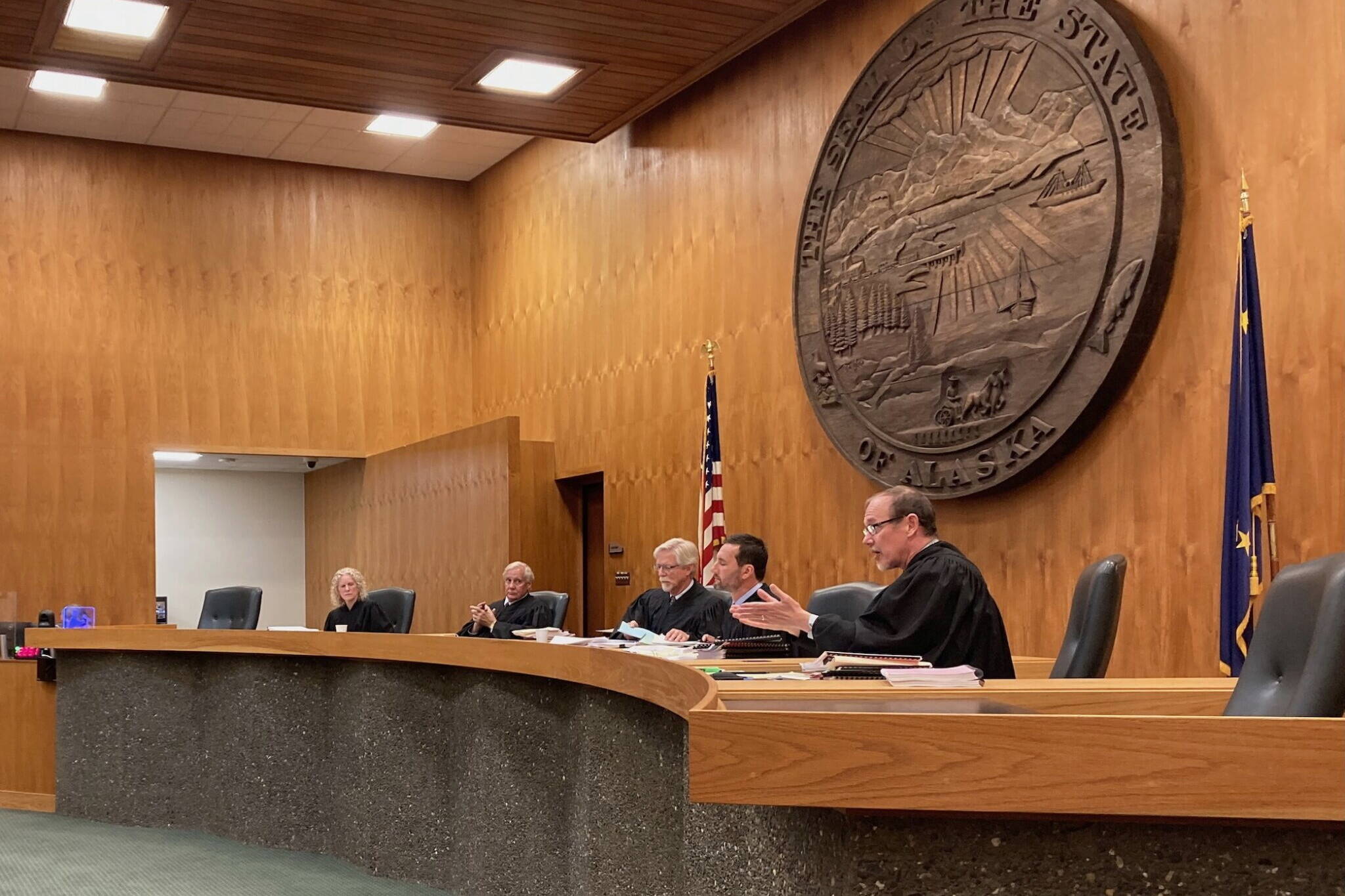The Alaska Supreme Court has affirmed the U.S. House candidacy of Eric Hafner, a Democrat imprisoned in New York state.
The court, in a split 4-1 decision, upheld Anchorage Superior Court Judge Ian Wheeles’ decision to dismiss a lawsuit by the Alaska Democratic Party that had challenged Hafner’s eligibility.
The decision means Hafner will appear on the November U.S. House ballot alongside incumbent Democrat Rep. Mary Peltola, Republican challenger Nick Begich, and Alaskan Independence Party challenger John Wayne Howe.
It also means that election preparations, including ballot printing and distribution, will continue on a previously published schedule.
“We would just thank the Supreme Court for issuing a decision on such short notice and preventing any disruption to the election,” said Solicitor General Jessie Alloway, assistant attorney general Thomas Flynn and assistant attorney general Kate Demarest, who opposed the lawsuit on behalf of the Alaska Division of Elections.
Under Alaska’s elections system, the top four finishers from the primary election advance to the general election. Hafner finished sixth, but two higher-finishing Republicans withdrew from the race, allowing Hafner to advance.
The Democratic Party sued, arguing that state law prohibited the elections division from replacing two withdrawn candidates.
The party also argued that Hafner was ineligible because the U.S. Constitution requires a candidate to be an inhabitant of the relevant state when elected to the House. Hafner is serving a 20-year prison sentence for threatening public officials in New Jersey and is not scheduled for release until 2036.
Wheeles rejected the party’s arguments, and the Democratic Party appealed the state-law issue to the Supreme Court, which took up the issue on an emergency basis.
The Alaska Republican Party intervened on the side of elections officials, seeking to preserve their decision to promote Hafner.
The court heard oral arguments Thursday morning and issued a summary decision hours later, stating that the lower court decision was correct. A full legal opinion will be published at a later date.
Democratic Party officials said they were disappointed with the outcome.
“Unsurprisingly, the Alaska Republican Party publicly supports the decision that a convicted felon who is running his campaign from a prison cell in New York should appear on Alaska’s ballot as a candidate for federal office,” said Mike Wenstrup, Chair. “This ruling sets a dangerous precedent and is embarrassing for our state.”
The issue may have implications for this year’s U.S. House race. The Alaska Democratic Party is supporting Peltola, and attorneys representing the party said in oral arguments that some voters could be confused by the presence of two Democrats on the ballot.
Peltola is believed to be in a close race with Begich, and some Democrats worry that Hafner could act as a spoiler by siphoning votes from Peltola.
Wheeles addressed and rejected that argument, noting that Alaska’s ranked choice general election allows voters to list multiple preferred options, and any voter who lists Hafner alone is making a deliberate choice.
In oral arguments in front of the Supreme Court, ADP attorney David Fox said the plain language of the state’s elections law allows only the fifth-place primary-election finisher to advance if a higher-finishing candidate withdraws after the primary.
That argument was rebutted by Demarest and attorney Richard Moses, representing the Alaska Republican Party.
Both said that the language of surrounding law, plus existing case law, makes it clear that the intent of the law is to allow the division of elections to fill the “final four.”
If a second candidate withdraws, the sixth-place finisher becomes the fifth-place candidate, and thus eligible for promotion into the final four, they said.
In a sworn affidavit, elections director Carol Beecher said that with draft ballots already printed and equipment undergoing testing, any ballot redesign would delay the mailing of blank ballots to international voters.
That mailing, required by federal law, must take place by Sept. 21. Because that’s a Saturday, the division must mail about 3,500 ballots by Sept. 20, officials said.
Additionally, about 700,000 ballots will be printed for the general election, a process that must begin early because it takes two and a half weeks.
• James Brooks is a longtime Alaska reporter, having previously worked at the Anchorage Daily News, Juneau Empire, Kodiak Mirror and Fairbanks Daily News-Miner. This article originally appeared online at alaskabeacon.com. Alaska Beacon, an affiliate of States Newsroom, is an independent, nonpartisan news organization focused on connecting Alaskans to their state government.

